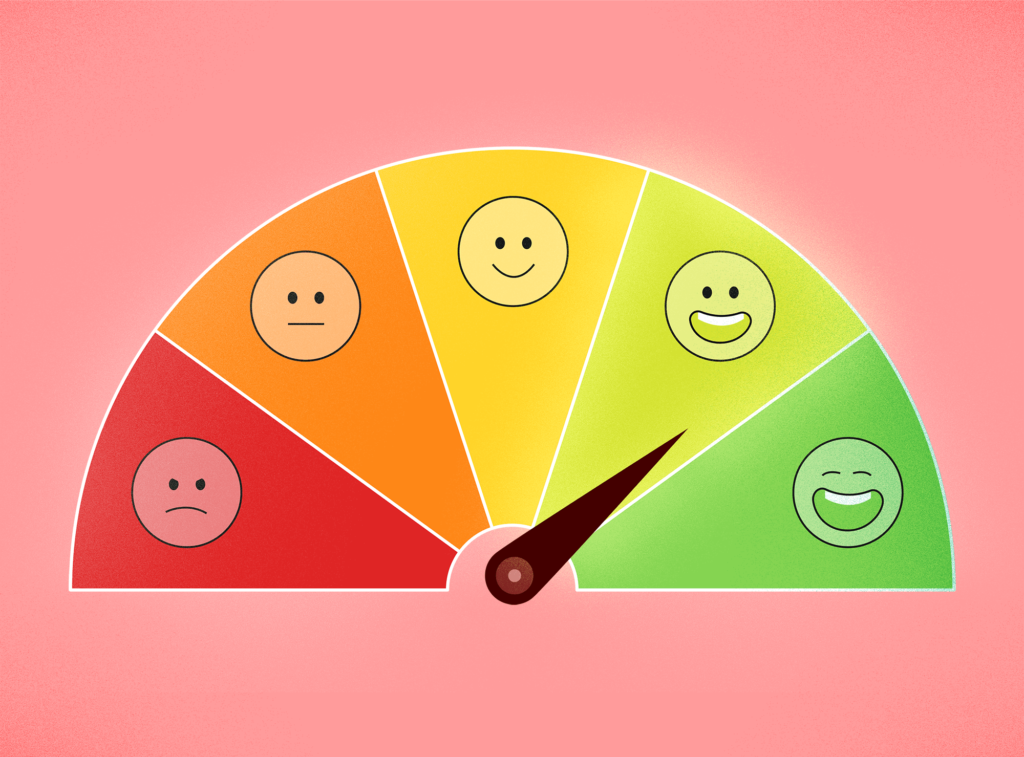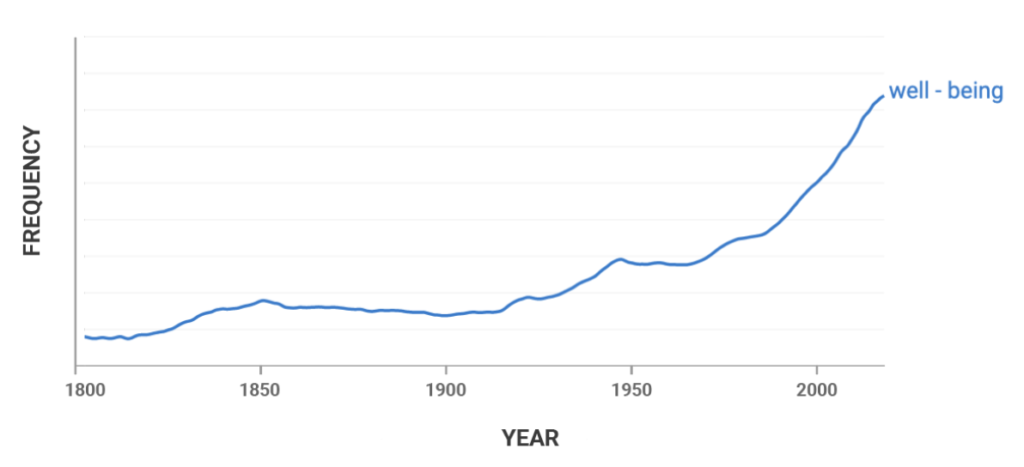
According to Google Ngram, which tracks the popularity of words and phrases in books, well-being is having a moment.
But the moment, I think, will last the millennia. Because a concern for well-being is not a passing fad—it’s a permanent transformation.

Source: Google Books Ngram Viewer
Around the globe, policymakers are prioritizing well-being. Why? Because our lived experience as human beings matters as much as the bales of cotton, kilowatts of energy, and gigabytes of information that we, as a society, produce each year.
And the pandemic has only added to the concern, for adults and children alike. How are the young people in your life feeling right now? Are they thriving, languishing, or somewhere in between? Do you know?
Because you cannot manage what you cannot measure, Character Lab created the Student Thriving Index. Administered each fall, winter, and spring using Qualtrics to over 100,000 middle and high school students nationwide, this self-report questionnaire separately indexes social, emotional, and academic dimensions of well-being.
Here are some of the questions:
In your school, do you feel like you fit in?
In your school, is there an adult you can turn to for support or advice?
How happy have you been feeling these days?
Do you feel like you can succeed in your classes, if you try?
While keeping individual student responses confidential, we aggregate responses at the school level to create dynamic dashboards for the educators in our network. At a glance, schools can see how the young people in their community are feeling.
Researchers use the same anonymized data to answer urgent questions such as what is the effect of remote schooling on adolescent well-being? (Answer: not good).
Some might argue that well-being is for wimps. I don’t think so. The hardest-working people I know care a great deal about their own well-being and that of others, too. You’re far from your best when you feel isolated, sad, insecure, or bored. And the country of Finland, famous for their gritty culture, is also the happiest country in the world.
Don’t think that going back to school means leaving feelings behind. It is only possible to keep calm and carry on when we feel seen, heard, and cared about.
Do use the Student Thriving Index as a conversation starter with the young people in your life. Consider answering the questions yourself, too. What’s most important is what happens next, which is talking about why you each answered the way you do. Let well-being have its moment—it deserves our attention.
With grit and gratitude,
Angela
